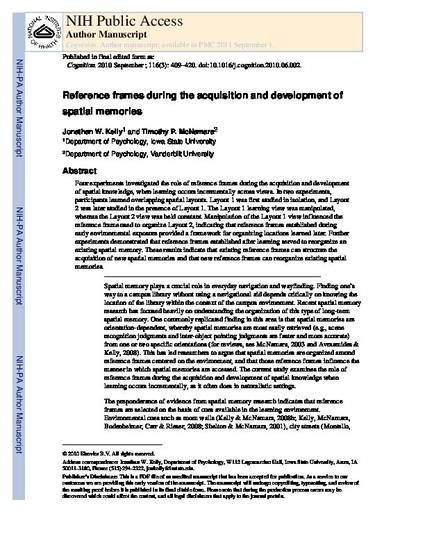
Four experiments investigated the role of reference frames during the acquisition and development of spatial knowledge, when learning occurs incrementally across views. In two experiments, participants learned overlapping spatial layouts. Layout 1 was first studied in isolation, and Layout 2 was later studied in the presence of Layout 1. The Layout 1 learning view was manipulated, whereas the Layout 2 view was held constant. Manipulation of the Layout 1 view influenced the reference frame used to organize Layout 2, indicating that reference frames established during early environmental exposure provided a framework for organizing locations learned later. Further experiments demonstrated that reference frames established after learning served to reorganize an existing spatial memory. These results indicate that existing reference frames can structure the acquisition of new spatial memories and that new reference frames can reorganize existing spatial memories.
Available at: http://works.bepress.com/jonathan_kelly/26/

This is a manuscript of an article published as Kelly, J.W. & McNamara, T.P. (2010). Reference frames during the acquisition and development of spatial memories. Cognition, 116(3), 409-420. doi: 10.1016/j.cognition.2010.06.002. Posted with permission.